Why Vodka Not Made From Corn Matters More Than You Think
Vodka not made from corn opens up a world of flavor, texture, and craft that goes far beyond the standard bottle. While many popular vodkas rely on corn as their base ingredient, an exciting range of alternatives exists—from creamy potato vodkas rooted in Polish tradition to crisp grape-based spirits and even unique offerings made from wheat, rye, apples, and honey.
Here are the primary non-corn vodka bases and what they offer:
- Potato Vodka: Creamy, full-bodied, with earthy notes. Traditional in Poland and excellent for sipping neat.
- Grape Vodka: Floral, crisp, and smooth with less burn. Perfect for neat cocktails or enjoying on its own.
- Wheat Vodka: Clean, crisp, and versatile. A neutral base that works in any cocktail.
- Rye Vodka: Spicy, peppery, with more character. Adds complexity to mixed drinks.
- Apple Vodka: Crisp with subtle fruit notes. A fresh take from regional distillers.
- Honey Vodka: Rich, floral, and naturally sweet. A craft specialty for adventurous palates.
For centuries, vodka has been crafted from whatever ingredients were abundant in a region. In Poland and Russia, potatoes and rye dominated. In France, grapes became the base of choice. Corn entered the picture primarily in the United States, where it was cheap and plentiful. But as the craft spirits movement has grown, distillers have returned to these traditional bases—and innovated with new ones—to create vodkas with distinct flavor profiles, unique mouthfeel, and premium quality.
The rise of non-corn vodkas isn't just about tradition. It's also about dietary preferences (many non-corn bases are naturally gluten-free), sustainability (organic farming practices), and the pursuit of exceptional taste. Today's consumers want more than a neutral spirit—they want character, authenticity, and a story in every bottle.
As Sylwester Skóra, founder of Two Flags™ Vodka, I've spent years honoring Polish vodka-making traditions while exploring the best vodka not made from corn to deliver unparalleled quality and taste. Our journey from Poland to America has taught us that the base ingredient matters—it's the foundation of everything that follows.
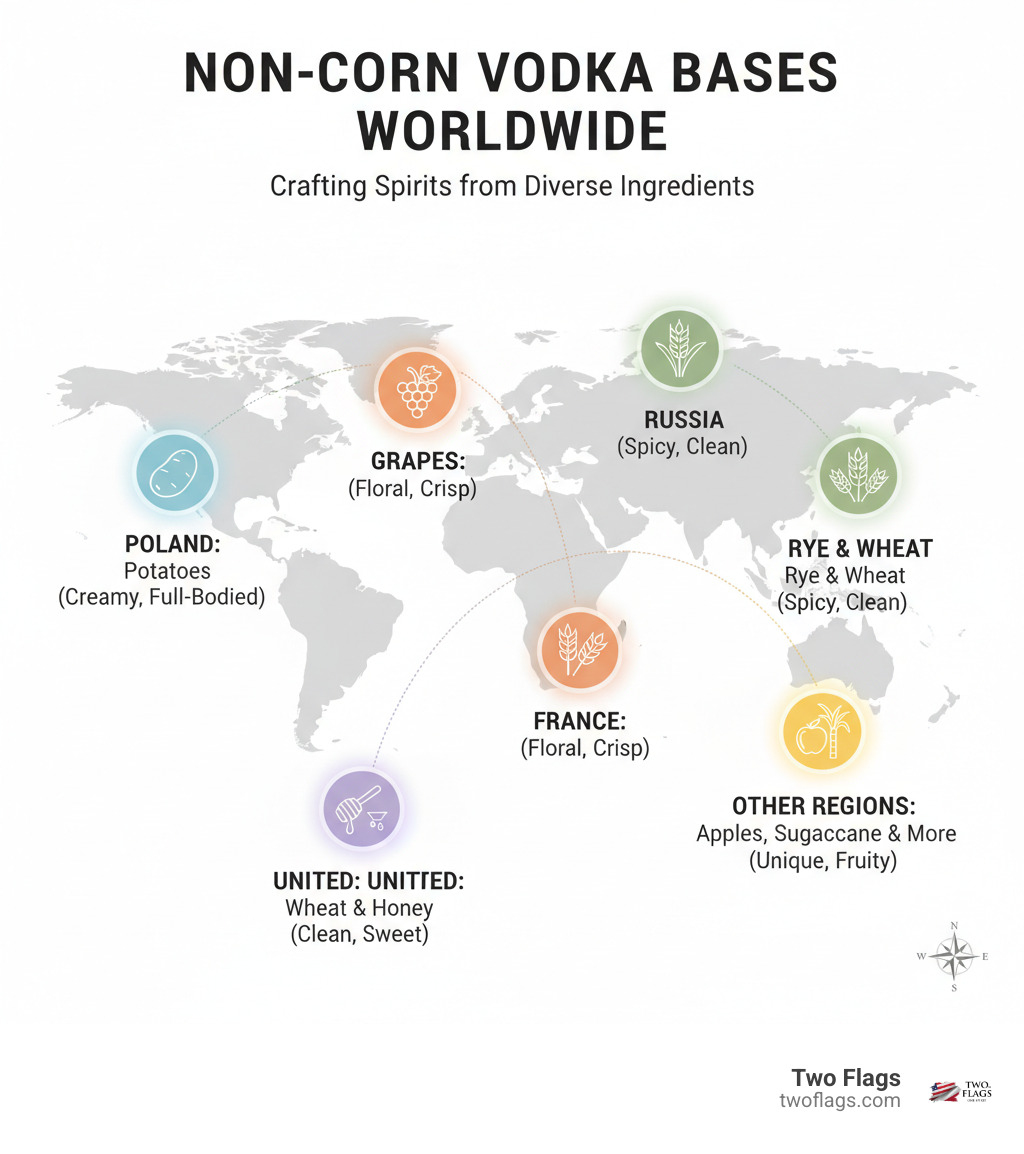
Why Look Beyond Corn for Your Vodka?
Many view vodka as a neutral cocktail mixer, but that's only half the story. The craft spirits movement has brought the base ingredient back into the spotlight. Choosing vodka not made from corn opens a world of flavor, texture, and tradition that corn-based vodkas often lack.
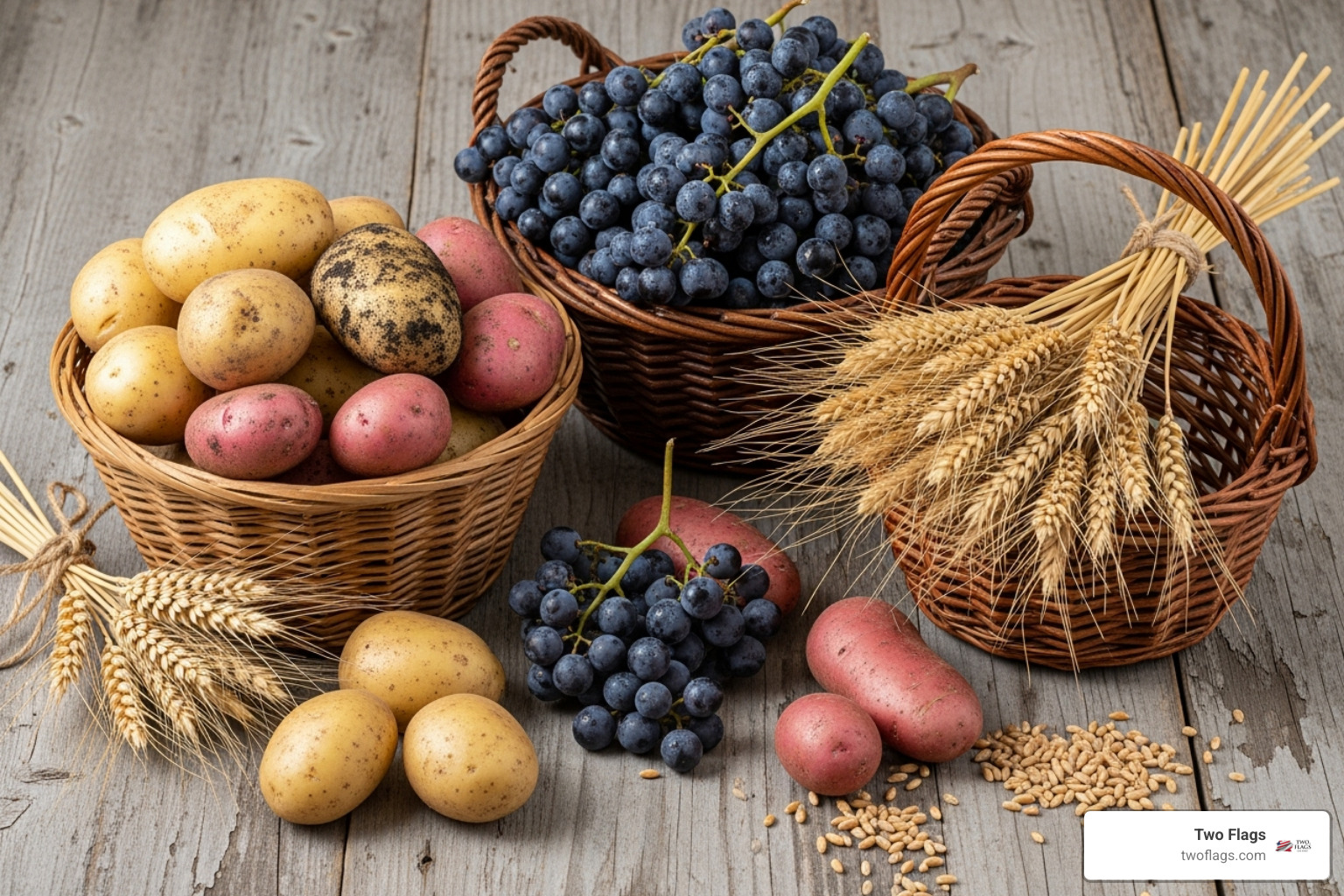
The Allure of Flavor Diversity and Unique Mouthfeel
The base ingredient is the heart of any vodka. It determines the fermentable sugars, and its origins leave a subtle fingerprint on the final spirit, even after distillation. A crisp apple tastes nothing like a starchy potato, and those differences don't disappear in the bottle. A grape-based vodka carries floral aromas, while a rye vodka brings a peppery spice. These are the genuine personality of the raw material.
The mouthfeel is also distinct. Potato vodkas offer a creamy, velvety texture, while grape vodkas have a lighter, crisper finish. These variations make each sip memorable and worth savoring.
Riding the Wave of Premiumization and Craft
Consumers are no longer just buying bottles; they're investing in experiences, stories, and quality craftsmanship. Market trends in spirits show people will spend more for special products. This premiumization trend is about respecting what's in your glass.
The craft spirits movement accepts this. Small-batch distillers select ingredients carefully and take pride in every bottle, an authenticity mass production can't replicate. At Two Flags, we honor Polish traditions to create something exceptional. The base ingredient is the foundation of the entire drinking experience.
Dietary Preferences and Sustainable Choices
Exploring vodka not made from corn also aligns with modern dietary needs and environmental values. Many non-corn bases like potatoes and grapes are naturally gluten-free, which is crucial for those with gluten sensitivities or celiac disease, allowing them to enjoy premium vodka without compromise.
Sustainability is also key. Many producers are committed to organic farming, renewable energy, and responsible water management. As we've explored in The Organic Advantage: Why Your Choices Make a Difference, choosing organic and sustainably produced spirits supports a healthier planet and a purer product. Every bottle supports a better world.
Looking beyond corn is about seeking unique experiences, savoring flavor diversity, and supporting brands that value quality and craft. It's about finding a vodka that tells a story and delivers a memorable taste.
A World of Flavor: Exploring Vodka Not Made From Corn
Vodka's versatility comes from its crafting process. While distillation aims for purity, the base ingredient creates the foundational character of each vodka not made from corn. Let's explore how different bases contribute to the spirit.
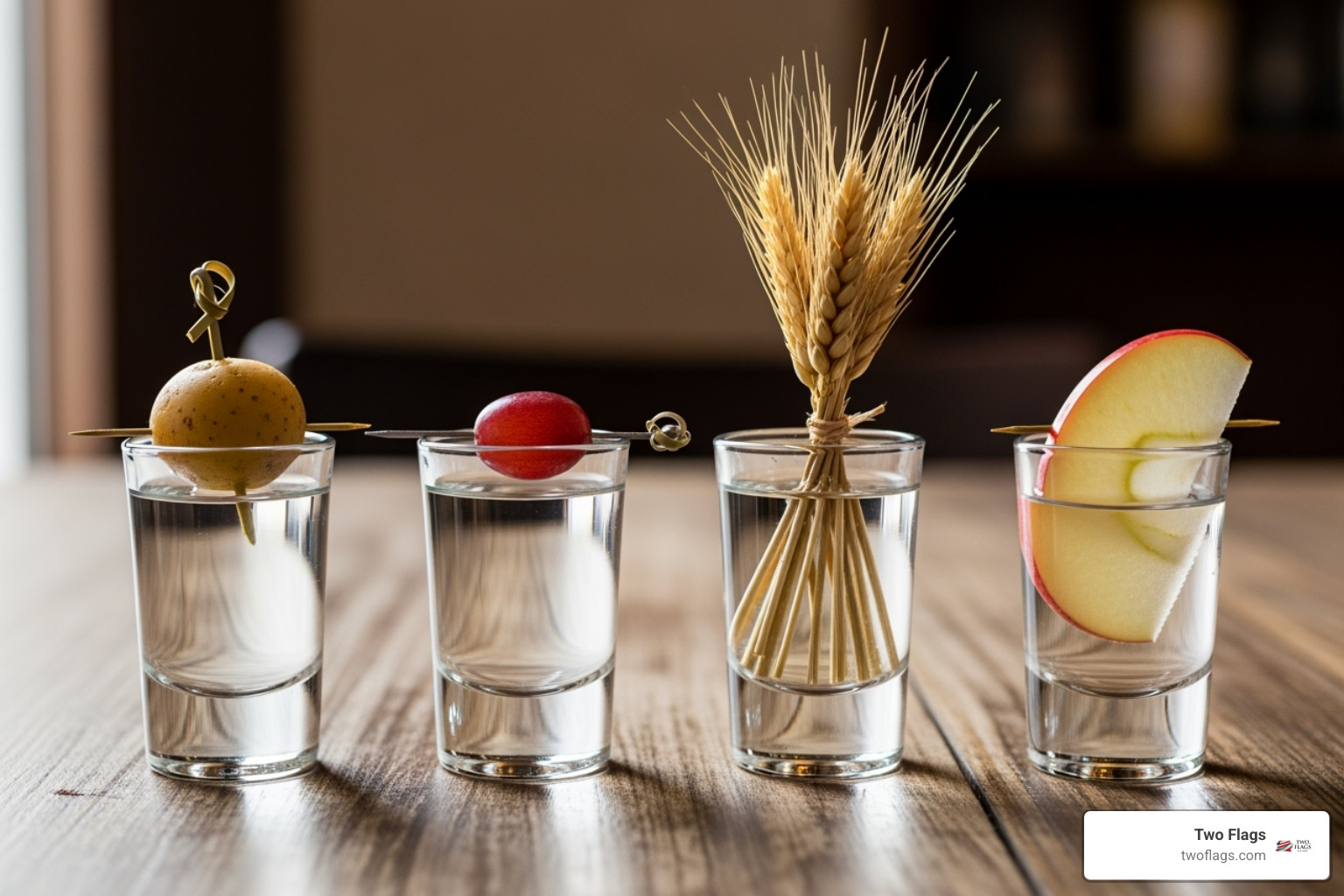
The journey from crop to spirit begins with fermentation, turning natural sugars into alcohol. Distillation then purifies it. While aiming for a "neutral" spirit, the base ingredient imparts subtle nuances—the spirit's DNA. As we explore in The A to Z of Vodka: What it is, How it's Made, and its Potency, understanding this journey helps us appreciate each vodka's character.
Distillation is crucial, but the base ingredient's fingerprint remains, affecting mouthfeel, aroma, and flavor. This makes exploring vodka not made from corn so rewarding, as each base tells its own story.
Potato Vodka: The Creamy Classic
Traditional Polish vodka often brings potatoes to mind. Our heritage at Two Flags is rooted in this tradition, as detailed in The Spirit of Poland: Unveiling Traditional Vodka. A potato base yields a rich, slightly sweet alcohol, creating a vodka with a luxurious texture. The flavor profile is distinct: a creamy mouthfeel with earthy, nutty undertones. It's a full-bodied spirit with presence and character that stands up on its own. Potato vodka is excellent for sipping neat or on the rocks and is our top pick for a classic martini.
Grape Vodka: A Touch of the Vineyard
Grapes from sun-drenched vineyards offer a neat, aromatic base for vodka. They provide a sophisticated, almost wine-like departure from grain-based spirits. Naturally rich in sugar, grapes ferment into a spirit with delicate floral aromas and a crisp character. The flavor is light with a smooth finish, a subtle hint of fruitiness, and less burn, making it very approachable. Enjoy grape vodka's elegance by sipping it neat, perhaps with a lemon twist. It also makes an exquisite Vesper martini.
Wheat & Rye Vodka: The Crisp and the Spicy
Beyond corn, grains like wheat and rye offer distinct profiles central to traditional European vodkas. Wheat vodka is typically clean, smooth, and slightly sweet, making it versatile for any cocktail. Rye vodka is bolder, with peppery and spicy notes and a robust body that adds complexity. Spelt grain, an ancient grain, offers a unique profile with a clean finish. Wheat's clean profile is a perfect canvas, while rye's spicy kick adds an intriguing layer to drinks. For more on grain vodkas, explore Beyond the Shot Glass: Discovering Poland's Finest Vodkas.
Other Unique Bases: Apples and Honey
The world of vodka not made from corn is evolving as distillers explore unconventional bases. Apple-based vodka is crisp with subtle fruity undertones, perfect for a unique twist on classic cocktails. Honey-based vodka offers a luxurious experience with rich, floral notes and natural sweetness. Innovative distillers also use bases like sugarcane for a silky vodka or pineapple for an exotic twist, highlighting the diversity available. Learn more in From Farm to Glass: The Best Organic and Natural Vodkas.
From Farm to Glass: The Craft of Non-Corn Vodka
Creating exceptional vodka not made from corn is an art form, a meticulous process that begins with the raw ingredient and culminates in a perfectly balanced spirit. The journey from farm to glass is where the character of these unique vodkas is truly honed, with each step influencing the final taste and texture.

Distillation and Filtration: Shaping the Spirit
The magic of vodka-making happens in the distillery. As we explore in Vodka's Journey: A Step-by-Step Guide to How it's Crafted, these steps are about purification and refinement while preserving what makes each base ingredient special.
Column stills are the workhorses of modern vodka production, offering continuous distillation for remarkable purity. In contrast, pot stills offer a more traditional approach, retaining more of the base ingredient's character. Multiple distillations are a hallmark of quality in vodka not made from corn, refining the spirit and creating a clean, smooth finish.
Filtration is a personal choice for distillers. Some choose not to filter, believing true smoothness is created during distillation and that filtering can strip away desirable characteristics. Others use natural filtration to polish their vodka. This choice directly impacts the final flavor and purity, allowing the subtle notes from the base to shine through or be gently smoothed.
Sustainable Production and Organic Practices
The appeal of non-corn vodkas often extends beyond taste to sustainability and organic farming. Organic farming is a cornerstone of premium vodka, supporting healthier ecosystems and delivering a purer product. At Two Flags, our commitment to organic, ultra-premium vodka reflects this movement toward conscientious production.
Water conservation and renewable energy are also increasingly common. Distilleries may run on renewable energy or use sophisticated water recycling systems to minimize their environmental impact. Choosing non-traditional, local bases can also reduce carbon footprints. This dedication to sustainability adds value beyond the bottle, making each sip a more conscious choice.
Production Costs and Retail Price
It's natural to wonder why vodka not made from corn sometimes carries a higher price tag. The answer lies in the ingredients, process, and craft philosophy.
Raw material prices play a significant role. Organic grapes, premium apples, or specialty grains cost more than conventional corn. Labor-intensive processes also add to production costs, as small-batch distillation and hand-sorting ingredients require more time and expertise. This is craftsmanship, not assembly-line production.
Many non-corn vodkas come from small-batch and craft distilleries that prioritize quality over volume, leading to higher per-unit costs but a more distinctive product. While the retail price may be higher, consumers are willing to invest in unique flavors, superior quality, and sustainable practices. It's an investment in a more refined and conscious drinking experience.
Frequently Asked Questions about Vodka
We hear a lot of questions about vodka, especially as more people explore options beyond the traditional. Let's tackle some of the most common queries about vodka not made from corn.
Is all vodka not made from corn gluten-free?
This is an important question. The answer is generally yes, with a few nuances.
Vodkas made from naturally gluten-free bases—like potatoes, grapes, apples, sugarcane, or honey—start without gluten. For anyone with celiac disease or severe gluten intolerance, these vodkas offer peace of mind.
Interestingly, even vodkas from gluten-containing grains like wheat, rye, or barley are generally considered gluten-free after distillation. The process separates gluten proteins from the spirit. Reputable organizations certify many grain-based vodkas as gluten-free because the gluten levels fall below detectable limits.
However, the main concern for highly sensitive individuals is potential cross-contamination. To be certain, always look for explicit "gluten-free" labeling or third-party certifications on the bottle. For more details, check resources like information on gluten in distilled spirits.
At Two Flags, we're proud to offer a gluten-free vodka that meets the highest standards, giving you one less thing to worry about.
Does vodka not made from corn taste different?
Absolutely! This is why we're so passionate about these alternatives. The idea that all vodka is a "neutral spirit" is a myth when it comes to quality craft vodkas.
The base ingredient leaves its signature on the spirit. Potato vodkas are known for their creamy, velvety mouthfeel. Grape vodkas tend to be lighter and crisper, with floral notes. Rye vodkas bring a peppery spice, while wheat vodkas are typically clean and smooth. These subtle differences in flavor and mouthfeel are what discerning drinkers seek, allowing for a more nuanced experience. While vodka is highly purified, it's rarely completely neutral—and that's a beautiful thing. To understand what makes a good vodka stand out, explore our thoughts on Sip Smarter: Discovering What Good Vodka Really Means.
Is non-corn vodka more expensive?
The short answer is often yes, but it comes with a significant value proposition.
The raw materials for vodka not made from corn can be pricier. Grapes, for instance, are generally more expensive than corn. Additionally, many non-corn vodkas are produced by smaller, craft distilleries using more hands-on, labor-intensive methods. These processes cost more than large-scale, automated production.
The craft spirits market focuses on quality, uniqueness, and the story behind the bottle, rather than competing on price. While the retail price might be higher, many consumers find the improved flavor, unique mouthfeel, and sustainable practices offer a superior experience that justifies the investment. It's a case of "you get what you pay for."
For us at Two Flags, ensuring our ultra-premium organic vodka offers luxury quality at an unbeatable value is key. We believe exquisite vodka not made from corn should be accessible. When you invest in a bottle crafted with care, you're buying an experience and a commitment to quality you can taste in every sip.
Conclusion: Find Your Perfect Pour
The world of vodka is so much richer than most people realize. When you start exploring vodka not made from corn, you're not just choosing a different spirit—you're opening the door to an entirely new way of experiencing vodka. From the luxurious, creamy texture of potato vodka to the crisp, floral notes of grape-based spirits, from the bold spice of rye to the unexpected sweetness of honey or the fresh brightness of apples, there's truly a world of flavor waiting for you.
I hope this journey has shown you that the base ingredient matters. It's the foundation that shapes everything about a vodka—its character, its mouthfeel, and the story it tells. Whether you're looking for something naturally gluten-free, seeking a more sustainable choice, or simply want a vodka with genuine personality and craft behind it, vodka not made from corn offers incredible options.
At Two Flags™ Vodka, we've dedicated ourselves to honoring the centuries-old traditions of Polish vodka-making while creating something truly special for modern drinkers. Our ultra-premium, organic, gluten-free vodka represents everything we believe a great spirit should be: authentic, carefully crafted, and absolutely delicious. We're proud to offer luxury quality at a value that makes premium vodka accessible, not just aspirational.
The beauty of this category is that there's no single "right" choice—only the right choice for you. Maybe you'll fall in love with the creamy elegance of potato vodka in your martini. Perhaps you'll find that grape vodka is perfect for sipping neat on a quiet evening. Or maybe you'll enjoy exploring them all, appreciating the unique character each base brings to your glass.
So go ahead—venture beyond the familiar. Try something new. Let your palate guide you. And most importantly, savor the experience. That's what great vodka is all about.
If you're curious to learn more about vodka and making informed choices, we invite you to explore The Truth About Gluten in Vodka: A Clear Explanation. Here's to finding your perfect pour!



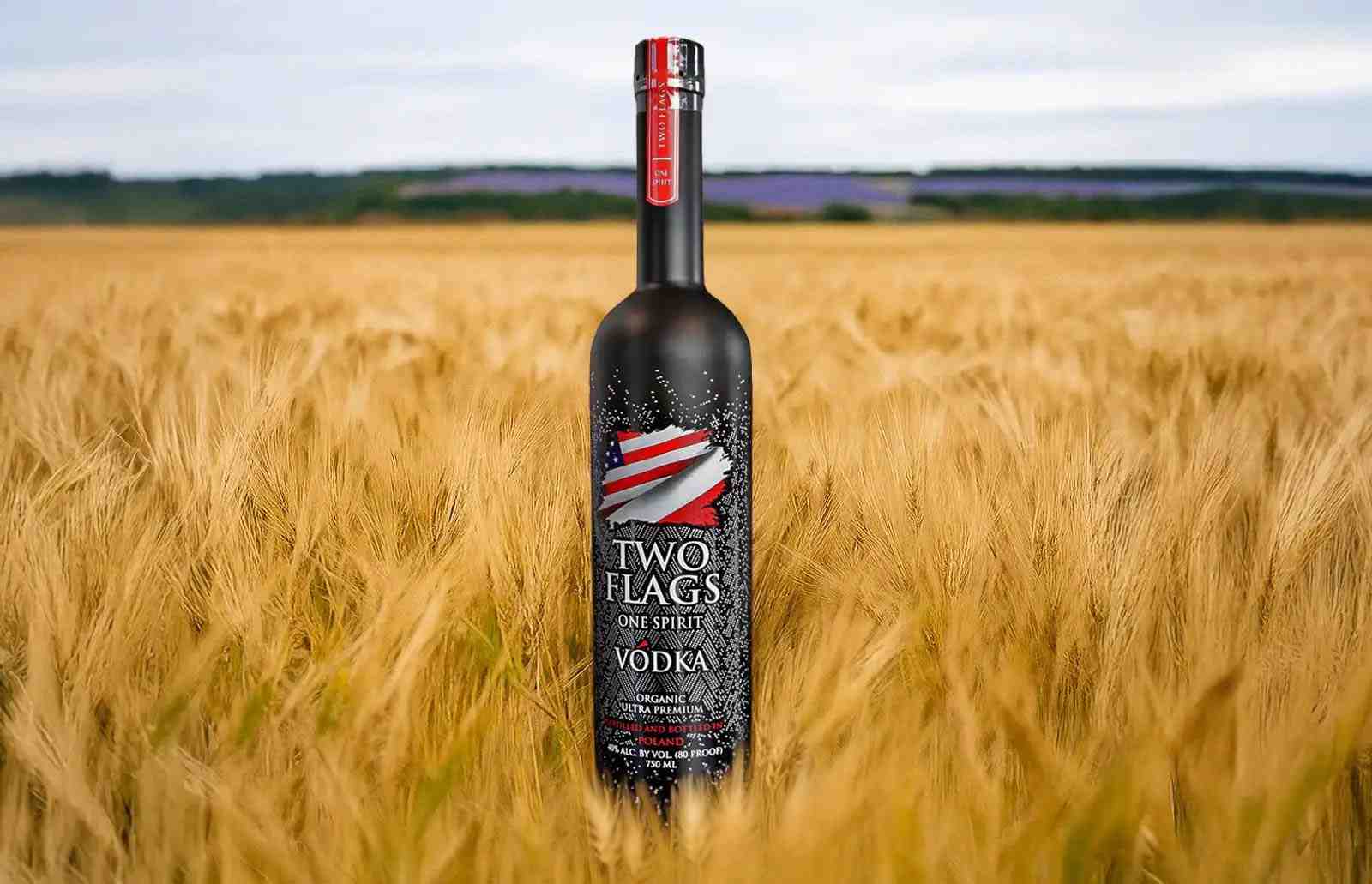
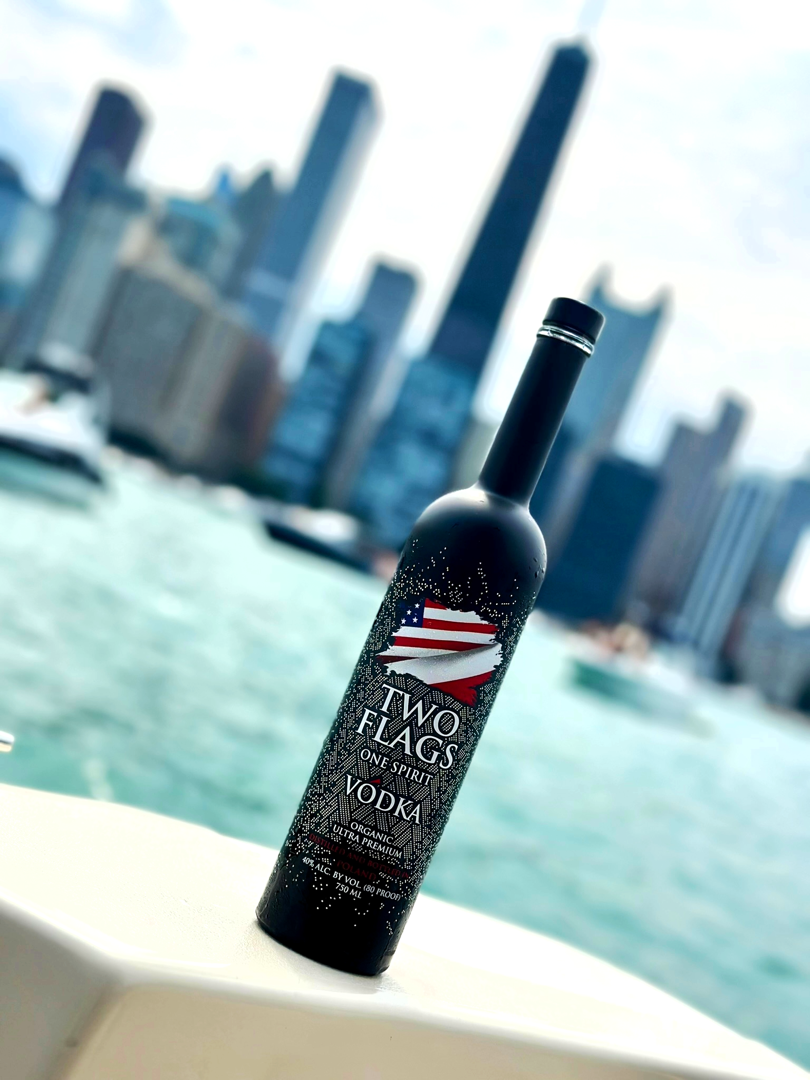

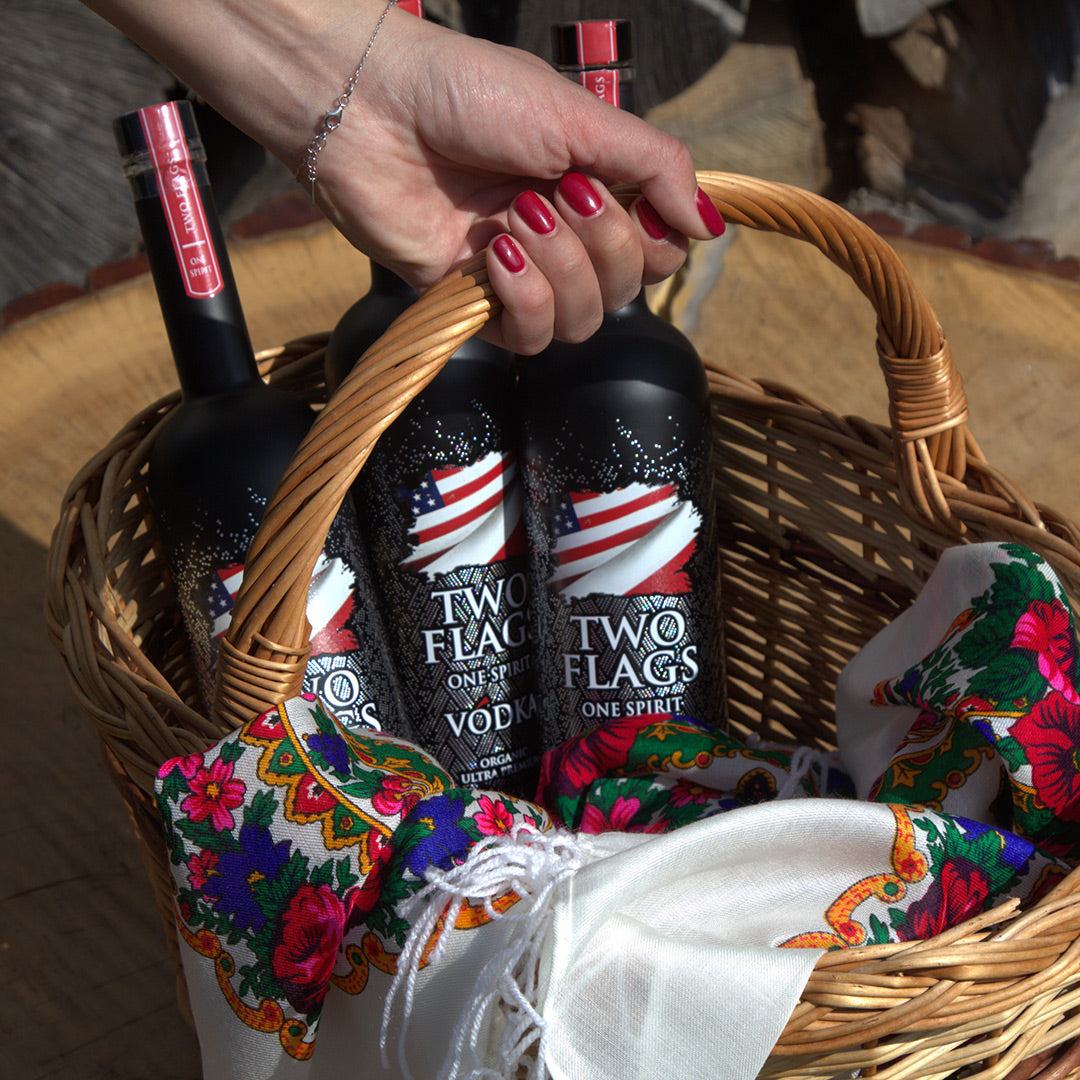
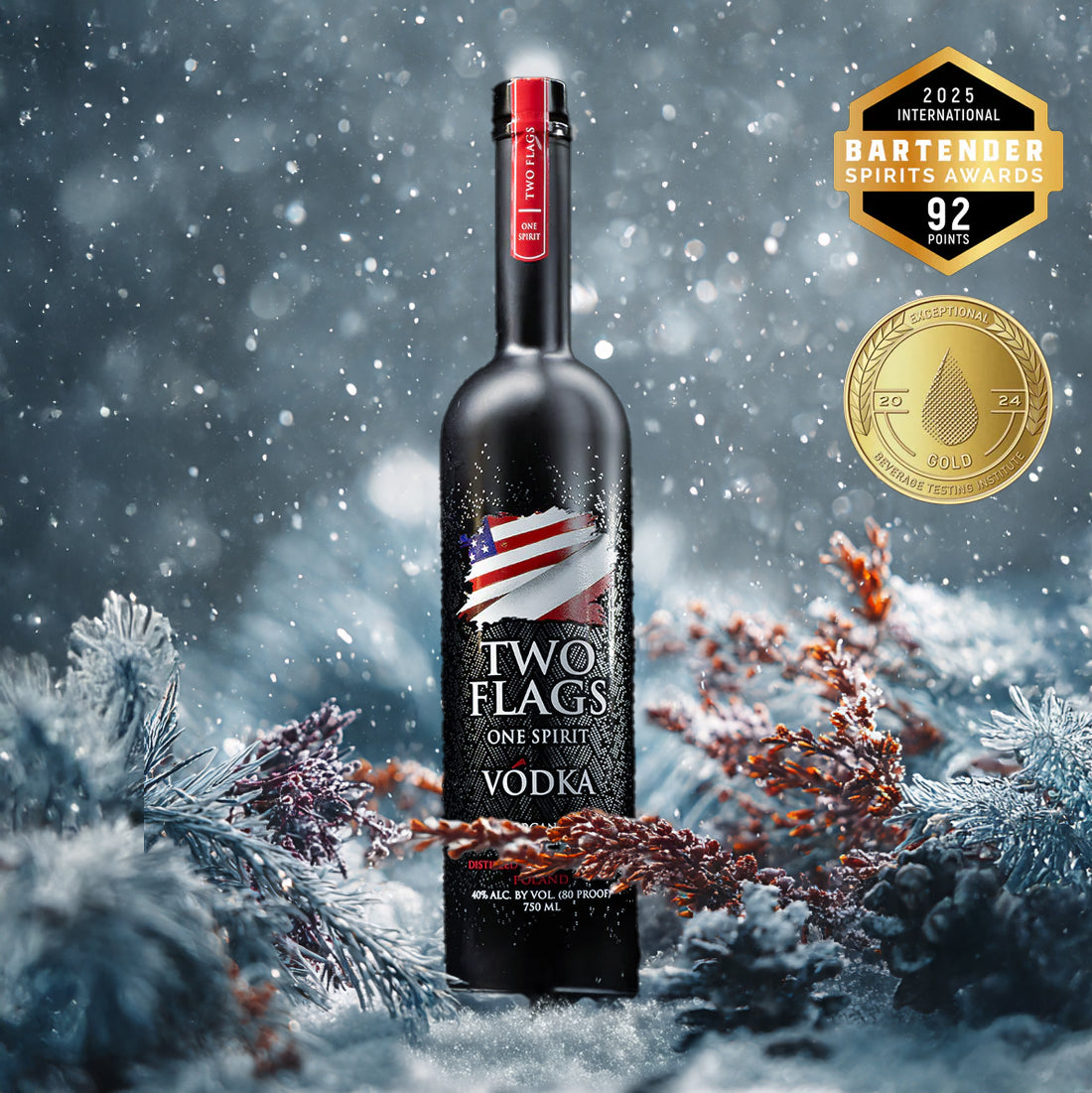
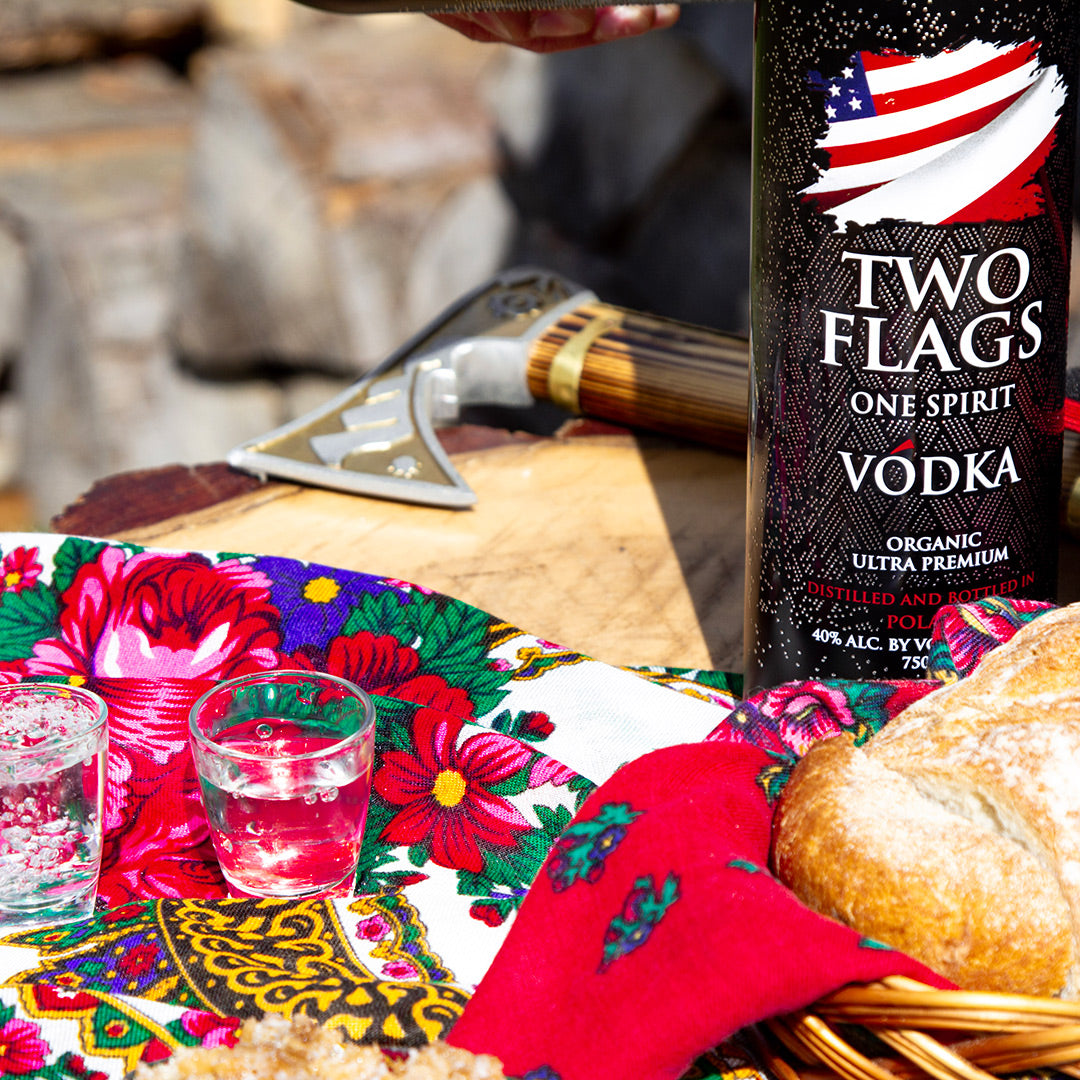
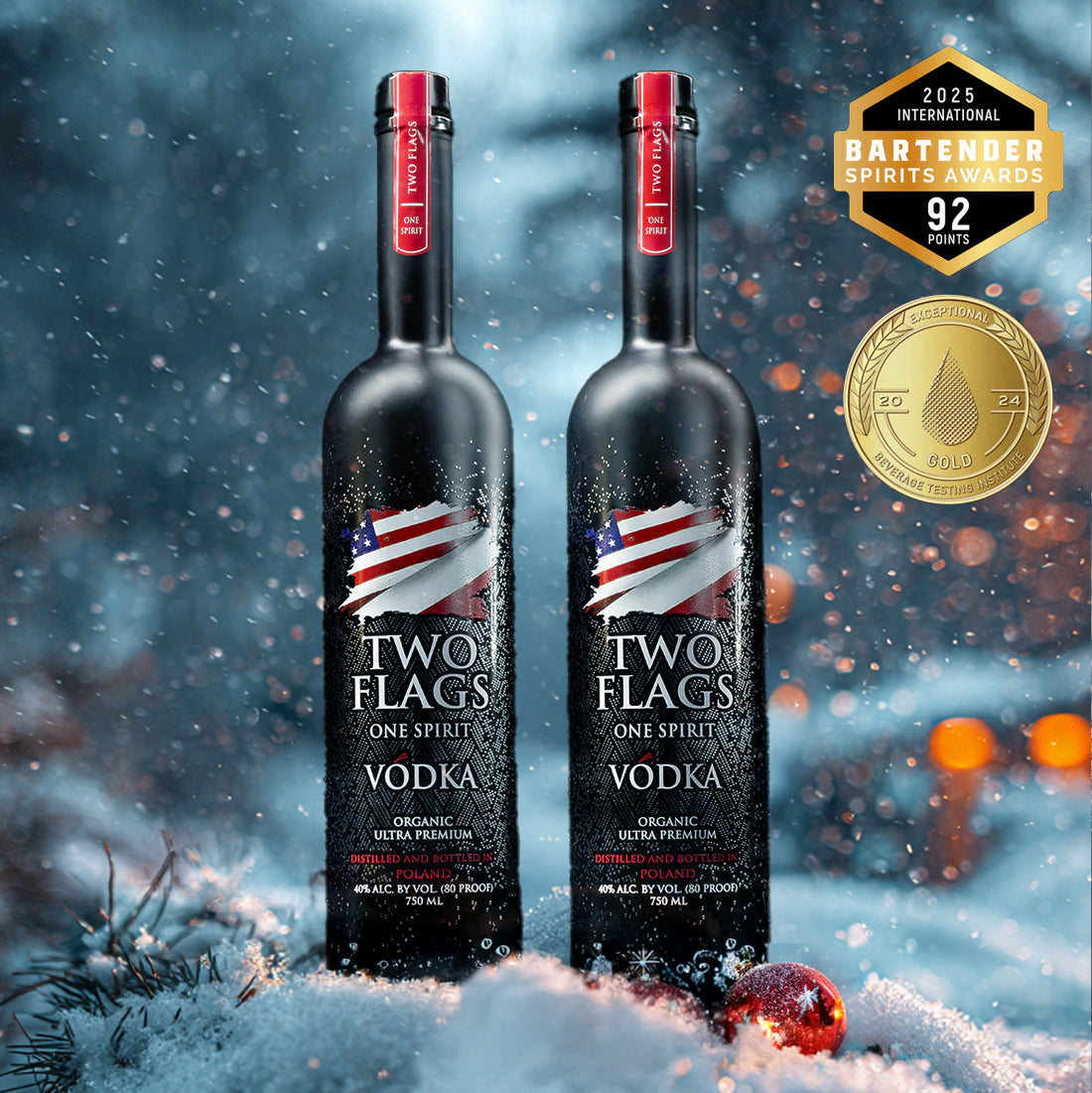

Leave a comment
This site is protected by hCaptcha and the hCaptcha Privacy Policy and Terms of Service apply.